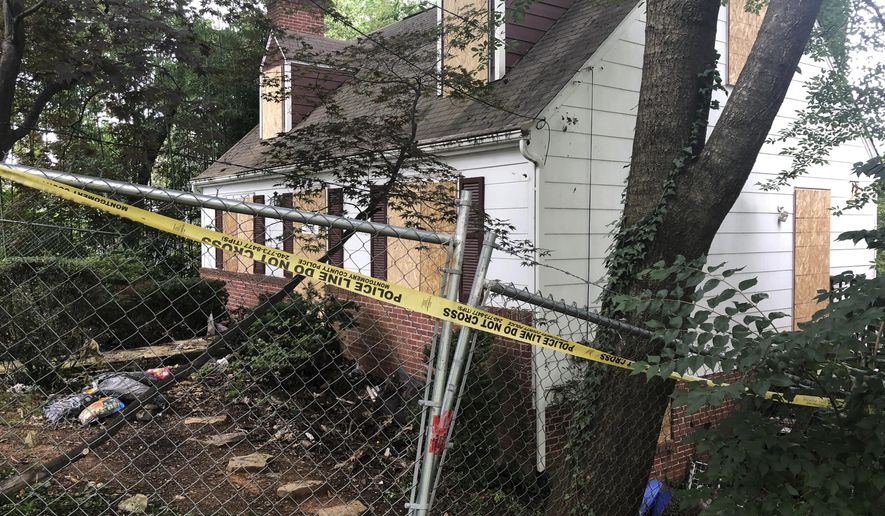A Maryland stock trader who was released from prison early in July after a man burned alive inside his home while digging tunnels in preparation for a North Korean nuclear attack has asked the Supreme Court to review his manslaughter conviction.
Daniel Beckwitt, a stock trader in Bethesda, argued in a 73-page filing to the Supreme Court that he was unable to use a certain legal defense — field preemption — against liability charges for the 2017 death of Askia Khafra. He is representing himself in his Supreme Court appeal.
Beckwitt, a young millionaire, hired Khafra, 21, to dig tunnels under his Maryland home in preparation for a potential nuclear attack from North Korea.
Beckwitt would drive Khafra, who would wear blackout glasses, around before the work in an effort to fool him into believing they were digging tunnels in Virginia and not in Maryland.
They had met in an internet chatroom where Beckwitt invested $10,000 into a smartphone app idea Khafra had, though the app never launched.
Khafra stayed in the basement of the home and in the tunnels for days at a time digging — even eating, sleeping and using a bucket to go to the bathroom.
According to The Associated Press, there was a 20-foot hole in the basement’s concrete floor that had various tunnels branching out, roughly 200 feet in length.
Khafra died when a fire broke out from faulty electrical wiring in the basement. He had texted Beckwitt about the smell of smoke hours earlier in the day.
Beckwitt called for help when the blaze broke out, but ultimately Khafra was discovered naked and charred.
Prosecutors said he was unable to get out due to the hoarding conditions in the home.
Beckwitt was convicted of second-degree murder and manslaughter in 2019, but his sentence was later reduced from nine years to five. A state appeals court overturned the murder conviction last year.
Beckwitt had served roughly three years when he became eligible for parole.
In March, Montgomery County Circuit Court Judge Margaret Schweitzer said Beckwitt was required to have five years of supervised release and complete 250 hours of community service upon his release.
He was released from prison in July. Beckwitt did not immediately respond to a request for comment about his case and appeal to the Supreme Court.
Robert C. Bonsib, the lawyer who represented Beckwitt at trial, said his former client is a “very intelligent individual.”
“He has been very actively involved in his case from Day One both in terms of legal issues and factual issues and this is just a continuation of his being fully engaged in the legal process,” Mr. Bonsib told The Washington Times.
A spokesperson from the Maryland attorney general’s office said they won’t comment on pending litigation.
The justices will convene Sept. 28 after their summer recess and review which cases they’ll take up during the upcoming 2022 term. They could decide to grant Beckwitt’s appeal — or deny the case — in their orders released as early as Oct. 3.
• Alex Swoyer can be reached at aswoyer@washingtontimes.com.




Please read our comment policy before commenting.